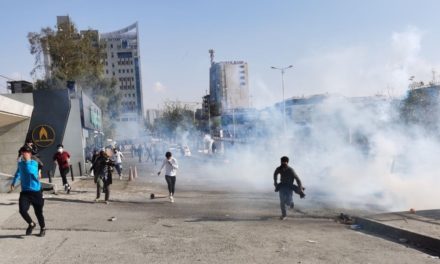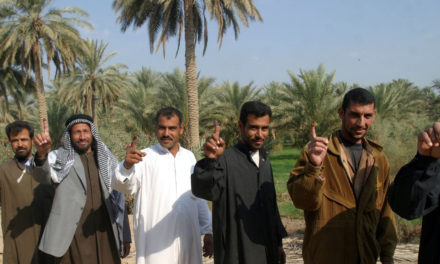The government in Baghdad faces a number of serious systemic challenges. According to most analysts, the biggest issues in Iraq are the lack of public services, unemployment, and political corruption. Muqtada Al-Sadr has given the prime minister a one-year deadline to enact reform and improve the lives of Iraqis, or else face a popular uprising.
While the urgency and severity of challenges related to public services, unemployment, and corruption are undeniable, the new Iraqi government should amplify their focus on education reform in tandem with other efforts to address larger systemic improvement. As education is vital for nation-building, Iraq must invest more revenue into education in order to implement broader positive change. More specifically, two pertinent issues in Iraqi education that must be addressed are the issues of teacher salaries and the lack of market relevance in educational curricula.
Across Iraq, teacher salaries are often delayed and sometimes reduced. As a result, demonstrations have emerged in all provinces, disrupting the delivery and quality of education. In the Kurdistan Region, periodic teacher boycotts have put pressure on Kurdistan’s regional government, however with poor auditing and financial corruption, Kurdistan needs funds from the central government in Baghdad. In March 2018, for the first time in nearly four years, Baghdad sent money to pay Kurdish teachers’ salaries. In Basra Province, salaries are often delayed, which is also a result of poor auditing and corrupt politics. Teachers across Iraq are scrambling to find supplementary private sector jobs in efforts to secure a basic income. In conversations I had with teachers from Basra, Baghdad, and Sulaymaniyah, teachers discussed a preference for the private sector, however in many cases, with doubled salaries, teachers are spread thin as they work extra hours.
Iraq’s government needs to focus on building an effective teacher salary system in order to ensure teachers are paid well and on time. The government should ensure that all financial and administrative elements of the education system – banking, payroll, education information management, public financial management, and auditing – run smoothly.
As Iraq continues to develop its market economy, there is a massive gap between the labor force and job market. The public sector has limited employment capacities, and with the current “youth bulge”, youth unemployment sits at around 18%. Over 50% of Iraq’s population is under the age of 19, and surprisingly, there is a higher youth unemployment rate among people with higher education.
In order to meet the demands of employers and the economy, positive reforms need to take place in higher education. The government should focus on refitting the curricula in order to properly teach market-relevant skills, which include marketing, web development, English, and other technical skills. In a 2017 poll conducted by IREX, Iraqi employers stated that English is the most desirable skill they seek. Other skills were cited as vital to the growth of the private sector workforce. These include computer skills, critical thinking, and problem solving.
As a former American English teacher in the Kurdistan Region of Iraq, I participated in the growth of a public university English center. At the University of Raparin’s Language and Development Center (UoR LDC), thousands of students received IELTS and professional English training. The UoR LDC was recognized by leaders of the Kurdistan Region and Iraqi media outlets for its success, specifically in IELTS testing results. The success of the UoR LDC shows that a public education institution can improve; and it can push for change. However, while my university was successful at providing marketable English instruction, most other similar initiatives are driven by private companies and organizations. The government must provide more opportunities in the education sector. It needs to ensure a growth in university English language centers, and invest in quality programs in order to close the educational achievement gap.
While education issues receive little attention by media and analysts, education reform must become a top priority in the broader project of reforming Iraq and combating systemic inequality and corruption. This starts with reform related to teacher salaries and the lack of market-relevant education. In order to build a stable Iraq, education must match the labor market demands, and educators must be fairly compensated. With the recent peaceful transfer of power, there is optimism related to the election; however, Prime Minister Adil Abdul-Mahdi has little time to start improving the situation in Iraq, given Sadr’s one-year deadline. It will be interesting to see if any reforms in education take place, and specifically, reforms that address the issues of salaries and curricula.

James Aird
James Aird worked in the Kurdistan Region of Iraq for 15 months and is currently an M.Ed student at Harvard University. He focuses on education policy.










